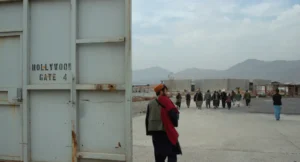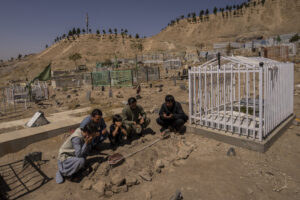Obama: The Extremists’ Nightmare
In the struggle against the extremists and terrorists, the new president understands how to divide the enemy and neutralize their base -- and is uniquely suited to accomplish the mission. He got elected in the United States of America, after all.In America’s struggle against the extremists and terrorists epitomized by al-Qaida, the strategic imperatives are to divide the enemy and neutralize their base. Fortunately for the United States and its allies, the new American president understands how to do that—and is uniquely suited to accomplish the mission.
If in the aftermath of 9/11 Western intelligence agencies had tried to conceive of a leader whose background would enable him to engage the world’s Muslims, they might have imagined someone like Barack Hussein Obama. Most analysts would naturally assume that such a person could never become president of the United States, but if they allowed themselves to imagine an ideal spokesman for American values, he might well have looked like the man elected last November.
Touring the ancient Ottoman capital of Istanbul, Obama stood as a living refutation of extremist propaganda before he spoke a single word. Son and grandson of African Muslims, he symbolizes what is often called “American exceptionalism”—the durable belief that the United States is the world’s hope to escape the old and bloody divisions that have been so ruinous for humanity over the centuries.
He rose through an open and democratic process, despite the legacy of racism and the vicious smears that denigrated his Christian faith while depicting him as a secret adherent of radical Islam. His middle name, uttered with a sneer by bigots during the campaign, is now an important asset (especially among the Shiites in Iran, Iraq and elsewhere). He personally embodies the message that America bears no ill intentions toward Muslims or their nations.
The previous administration’s inability to broadcast that message effectively was among its most salient and least noted failures. While American policy in the Mideast has often angered Muslims—not without reason in places from Israel to Iran—the United States has other and more inspiring stories to tell as well. American soldiers were dispatched to protect the people of Kosovo from their Serbian oppressors, who portrayed the conflict there as a centuries-old clash between Christianity and Islam.
Meanwhile, millions of Muslim-Americans live peacefully here, under the protection of a constitution that guarantees their religious freedom. And when those rights have been violated, fellow Americans of every persuasion have come to their defense.
No doubt Obama meant to emphasize those aspects of American life in his Istanbul speech, addressing Turkish students and young people across the developing world who long to believe again that the United States stands for equality, fairness and decency. That belief was impossible to sustain during a decade of war, destruction and torture. Now the burden is on the president to revive latent admiration for our country and our values.
The president’s diplomatic efforts resonate with special strength in Europe as well as across the Mideast, Africa and Asia precisely because he does not claim that his own beloved nation is without fault or flaw. He doesn’t pretend that American exceptionalism means American perfection. When he rebukes anti-American prejudice abroad, as he did at a town hall meeting in the French city of Strasbourg, his credibility is enhanced by honest acknowledgment of our mistakes.
While he returns home to remarkably strong and consistent support from most Americans, right-wing commentators relentlessly attempt to portray him as unworthy of trust and deficient in patriotism. They dishonestly truncate his speeches abroad, slicing out his defense of the United States and his rejection of anti-American propaganda, while headlining his candor about our flaws. They accuse him of apologizing for the war on terrorism, of “submission” to America’s adversaries and of “blaming America first” in seeking personal popularity abroad. They stand for policies that have brought us to the lowest stature in our history, and they have nothing to offer, no policy or plan, except lies and deceptions.
The remarkable popularity of Obama across the world is not an artifact of anti-American sentiment, but its opposite—namely, the hope that America will again stand for liberal traditions of generosity and cooperation. Now he has made a beginning.
Joe Conason writes for The New York Observer.
© 2009 Creators Syndicate Inc.
Your support is crucial...As we navigate an uncertain 2025, with a new administration questioning press freedoms, the risks are clear: our ability to report freely is under threat.
Your tax-deductible donation enables us to dig deeper, delivering fearless investigative reporting and analysis that exposes the reality beneath the headlines — without compromise.
Now is the time to take action. Stand with our courageous journalists. Donate today to protect a free press, uphold democracy and uncover the stories that need to be told.







You need to be a supporter to comment.
There are currently no responses to this article.
Be the first to respond.